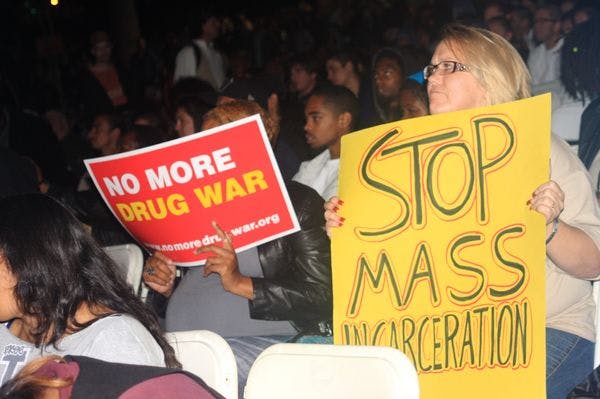FlickrCC
Drug policy reform in the post-American world order
By Péter Sárosi
There was a time when we expected that the end of aggressive American interventionism would open the gates to drug policy reform. We are now at the dawning of a new multipolar world order, but it is not only the spirit of reform that has been released from the bottle
I remember when I was invited to a meeting organised by the US government in Budapest in 2004, just a few months after I got a job at the Hungarian Civil Liberties Union to lead its drug policy program. The world was different then. A few years after 9/11, at the height of the war on terror and the war on drugs, the Bush administration behaved like the policeman of the world. Its actions were led by an arrogant neoconservative ideology, and a strong belief that American policies must be exported to other parts of the world, including Hungary. The meeting was a weird PR event, promoting the abstinence-based, zero-tolerance, US-style approach to drug policy that was dominating the global arena, including the UN drug forums and agencies. It was an eye-opening experience for me.
I came to believe that the greatest obstacle to drug policy reform was the USA’s dominance in drug policies, including the three UN drug control treaties (1961, 71, 88), forged by American narco-diplomacy. What we needed was more freedom for member states to move away from rigid compliance with these treaties, allowing governments to experiment with new policies and stopping the US from forcing its policies on other countries. People had to take back control from supranational bureaucrats and technocrats to pursue their own drug policies, protecting national sovereignty from international pressure.
Fourteen years later, I am wondering what could have changed more: America or the world around it. The war on drugs, although far from over, has lost its appeal to the American people. More and more US states are deciding to legalise marijuana, a move unimaginable back in 2004. The US is no longer the world’s policeman, on the contrary, it seems to be submerging itself in isolationism. The American hegemony is waning, its strong leadership in international processes, including the UN, is of the past. Multilateralism is decaying and international treaties and mechanisms are losing ground. Many emerging new powers are challenging the old system and the world is becoming a multipolar place, with growing emphasis on national sovereignty
